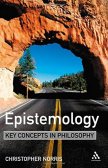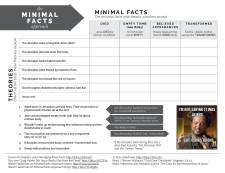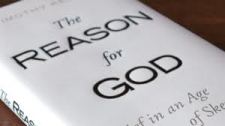A few thoughts on William Butler Yeats’ “Lapis Lazuli”. My apologies to Yeats, who must be rolling in his resting place. I found this poem by Googling for “lapis lazuli” – I wanted to see what the stone/color mentioned in the Bible looks like. You cannot deny that “Lapis Lazuli” is thought provoking… I am here to discuss and share those thoughts… and the study they triggered. I understand some may object, saying that poetry is not philosophy and not meant to be discussed in the way that I do. I’m weird – nuff said. A text of the poem can be found by using Google.com.
Lapis Lazuli is about overcoming tragedy through detachment in a “this, too, shall pass” mood – what we (or some of us) love so much about life – is overcoming. Not the struggle itself, so much, but the overcoming of it – and there is no overcoming without struggle. The “death wish” of Freud is actually an encounter with life. Nothing better than life threatened brings the value of life to the foreground (the whole reason for animal sacrifice: life for life – the price of sin, of hate, of deception, is death; separation from God who is life, truth and love – we empathize with the animal when we take its life, and in that way we feel the value of life and the harm caused by sin). The fearless youths and thrill seekers who seem to flirt with death actually assert their love of life through their mastery of death (granted… those who succeed, only do so temporarily…). It is true that some of those few who cannot find the value in life, who are on the verge of taking their own – find that value only when staring death in the face… and they change their mind and do not end life. But some follow through… some beg to die… some do not even feel energized by adversity or confrontations with death… some end life, not knowing it is not the end… what could Yeats have offered them?
I know Yeats was a mystic based on other things I have read which had nothing to do with poetry directly. He had nothing to say worth listening to on matters of life and death. He could not have told you that the One who gave you life can put purpose into it, give you a reason to live – though you may not understand how it is possible to create from seemingly nothing. He could not have told you that the One who designed you, the only One who has truly overcome the world, can help you care about overcoming, and overcoming in good conscience … with Love, through an intimate connection with the only One who has fully overcome — Jesus. The ‘memes’ of Yeats (certainly not Yeats the man) may live on in his poetry, but I assure you, beyond the seasonal pushing up of daisies with the rest of the unregenerate dead… he has overcome nothing (unless He had a heart-to-heart with God that we don’t know about). On a more positive note – my favorite part of Lapis Lazuli is this: “All things fall and are built again / And those that build them again are gay.” (Of course, not all things will be built again… some will eventually stay beaten down… Job 12:14.) It is tragic, but I know there are those of you reading, who understand what I mean when I say that deconstruction (the old wineskins must be destroyed) is often necessary before we can truly be constructive (creative, pouring new wine). God knows what He is doing.
Yeats’ treatment of tragedy strikes a chord. I have said many times before ever reading this poem… that beauty is born of tragedy… a Judeo-Christian theme (see for example Romans 5:3-5; Job 2:10; 5:17; Deut 8:5; 2 Sam 7:14; Ps 94:12; 1 Cor 11:32; Heb 12:5-11) counterfeited by many who do not give proper credit, and instead often, and ironically, when referring to it in the Bible, call it “slave/sheep mentality” – in that slaves consider suffering inevitable and do nothing to avoid it. Remember that God rescued the Israelites out of slavery, and wanted them to learn to follow His Law (given with our best interest in Mind) not because they were forced (like in Egypt), but because they had a choice to follow or not to follow – because they loved His Law (like under the promised new covenant of grace to which they looked forward). It is important to know that, though there is tragedy along the way, the Story (God’s Story, our Story) as a whole is a happy one. He is the Author, and we are the co-authors, as far as we are aware. When I wonder why He doesn’t take a ‘more’ active role in this Story, He reminds me of why I stay out of the scene when my sons are deep in laughter or a game of pretend, deep in whatever sort of interaction – because when you step into the scene, everything changes… and one day, in His timing, everything will change. I am glad He stepped into my scene – I was ready, though I didn’t know it, and was helpless to initiate it, for a change. Like Sara Groves sings in “Rewrite This Tragedy” – “Hold on, I’m changing all the scenery – it’s okay, we’ll be fine, ‘cause we know how this ends… there’s a better story.” [If you knew me before the change (really knew me), you know this change (if you’ve observed it) is a God thing. You know I was and am too weak (as we all are) to be good (the way God sees “good”) without God. Such a change is too good to keep to myself.]
On true Overcoming… We overcome by means of the love of Christ: Rom 8:31-39. Jesus has overcome the world: John 16:33, and through Him we overcome the world (1 John 5:1-4). Christians (those who overcome) are promised many rewards for overcoming: Matthew 10:22; Rev 2:7,11,26-28; 3:5,12,21 [a little of what the early Christians had to overcome: emperor worship from the Romans, unbelieving hostile Jews, false teachings of the Nicolaitans (with whom Jezebel and Balaam are associated in the book of Revelation – see the thread “Against the gods, goddesses, and syncretism” – and see the thread “Against Gnosticism”), martyrdom – just one example of this: “according to tradition, [Antipas] was slowly roasted to death in a bronze kettle during the reign of Domitian,” (Zondervan NASB Study Bible note on Rev 2:13).]
Our faith in God in the midst of trial refines us and makes us strong – but not independently from God. That we need God for that strength points to our weakness, yes – smoke and mirrors, my friend, is the meme that admitting weakness brands you as a “slave” and separates you from “the masters” in a fundamentally negative way. The reality is that all humans start out weak (relative to God), whether or not we share in God’s strength. The strong who attain strength apart from God (Love) are under the delusion that their strength matters. All “strength” obtained apart from God is counterfeit, temporary and corrupt (1 Cor 10:12), devoid of genuine, eternal, incorruptible (Eph 6:24) Love. Who is a master, relative to God?
Love (1 John 4:8,16) makes you vulnerable – which is why it takes the strength of God to do love right. Love’s power is perfected in our vulnerability (2 Cor 12:9). Those who do not dare to love because they think it makes one weak – lack the strength of God. Needs are only vulnerabilities when they can be used against you – and if God is for you, what can man do to you (Heb 13:6)? Denying we have needs and depriving ourselves is playing with fire, like grocery shopping on an empty stomach. He wants us to enjoy life in a right relationship with Him and eachother. One cannot overcome apart from Love – He bears all things, endures all things, Love never fails – for when the perfect (Love) comes, the partial (strength without Love) will be done away (1 Cor 13:7-10). All overcoming, apart from Love, is partial overcoming… which is not overcoming at all. We fool ourselves if we think we can attain real, lasting strength apart from our Creator. We deceive ourselves if we think we can outgrow Him. And in so doing, we cheat ourselves and rob ourselves of the Love (which, because we are vulnerable, requires the strength of God) for which He created (creates) (is creating) us (see determinism/free will thread). Self-reliance robs us of knowing God (Love)… so it is a good thing we all have human weaknesses for which He can be our strength.
To overcome (master) the world – not the world of people, nor the created (natural) world, but the world of sin – of patterns of behavior and thought which ignore or reject God (Love), and systems which support those patterns: put on the New Man and acknowledge God (Love), for without struggle (vulnerability to real Love) there is no overcoming (strength in God, who is Love). On mastering sin, see Genesis 4:7 (“you must master it”); Rom 6:14 (“sin shall not be master over you”). On putting on (walking as) the New Man (overcoming constant struggle with the Old Man, the phantom itch of the amputated flesh – if you are born again), see Eph 4:24 and Col 3:10.
“Do not be overcome by evil, but overcome evil with good.” – Romans 12:21
There was/is a belief that in order to master sin, you had to have a full experience of it (see “Against Gnosticism” thread, note on Rev 2:24). More smoke and mirrors – do not be deceived. It is just like saying, in order to become closer to God, you must get as far from Him as possible (baloney). Stick close to God, and He will transform you. Have God on your mind constantly and study His Word – and listen only to Love (1 Thess 5:17). That’s what Yeats, as a mystic, couldn’t have told you – how you truly overcome the world, rather than wallowing in it or detaching completely – how you truly live – is Love.
“Love wash over a multitude of things, make us whole…” – Sara Groves When It Was Over
“I have come that they might have life, and have it abundantly” – Jesus (John 10:10 NET).









